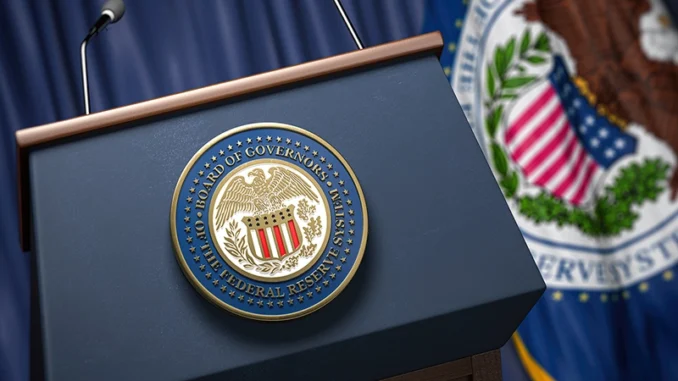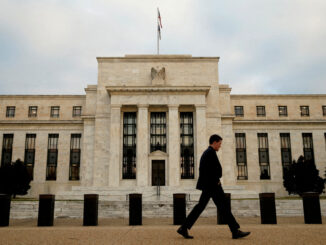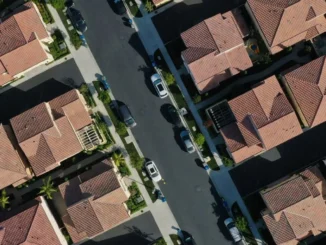
As expected, the Federal Reserve has increased its federal-funds rate by three-quarters of a percent Wednesday. The increase has many in the multifamily industry discussing the likely impact on apartment development and investment.
Given the multifamily sector’s commoditization over the last cycle, as well as the current tightness of spreads, rate hikes have a material impact on both current and future valuations, Alexander Apfel, vice president, acquisitions and asset management, Concord Capital Partners, told Multi-Housing News.
Rate hikes bring with them higher cost of capital, while also indirectly spurring rent and revenue growth from general economic slowdown.
“The most immediate effect of the rate hikes will likely be a widening of the disconnect between buyers and sellers,” he added. “Buyers will expect price adjustments to offset the increased cost of capital and lower growth projections. And sellers will likely hold on to the current cycle’s peak valuations. The buyer-seller disconnect, if it hasn’t already, could cause a substantial lull in the multifamily market.”
Higher borrowing costs will mean that acquisitions, new developments or capital improvements may be put on hold, scaled back or canceled entirely, said Paula Munger, AVP, National Apartment Association (NAA). “It’s important to keep in mind that even if the Fed goes through with all the expected rate hikes in 2022, interest rates will still be historically low,” she said. “And for the moment, rent growth remains strong, if not at record-breaking levels.”
Kimble Ratliff, National Multifamily Housing Council (NMHC) vice president, Government Affairs, took a slightly different view. Investment and development may slow along with rising interest rates, but capital will remain available. “It just might be more expensive,” Ratliff added. “Thinly capitalized properties or properties with a narrow debt-service coverage ratio and floating-rate debt may be those with the most concern. Further, borrowers who used debt fund capital in recent years with higher leverage and lower rates will have to accommodate both adjusting, which may be a challenge.”
Armstead Jones, strategic real estate advisor for Real Estate Bees, opined that rents will rise along with interest rates, because owners recognize the increased rates mean more would-be buyers being forced to continue renting. “The markets adjust but the idea of impact investment slows down because the margins get smaller,” he added. “Development continues, because these projects are already funded. Capital markets are still liquid, so they just need good deals with the right returns.”
The rate hike may slow multifamily investment as developers pause to determine whether the higher costs and cap rates will be offset by being able to charge residents steeper rental rates, added Brett Forman, executive managing director, Eastern U.S., Trez Capital.
Hard hit
Asked if any multifamily sectors had been especially hard hit by the rate hikes having taken place thus far, Munger answered in the negative.
There’s evidence sales volumes have slowed. But that moderation should have been expected given the record-breaking levels of 2021, even in the absence of a rate increase, she argued. “Sellers are being firm on their prices, and if they continue to do so, we will definitely see a pullback in transactions,” she added.
Forman said it’s difficult to quantify the number of sectors that have been affected by rate hikes thus far. “But interest rates affect values across the board,” he added.
For some markets, submarkets and sectors, debt will be more difficult to find, Munger said. She reported being interested to see the results of the Fed’s third-quarter Senior Loan Office Opinion Survey, slated for release on August 1.
The last release, which examined this year’s second quarter, was based on a survey of loan officers in April. It found demand continuing strong for multifamily loans and that banks were not yet tightening lending standards, Munger said. “I expect to see those two sets of survey results to reverse, on net, in Monday’s release,” she noted.
Added Forman: “Lenders have pulled back in the current recessionary environment. Additionally, some lenders rely on leverage in funding loans, so the lenders are affected as well.”
Property owners may be more hesitant to invest in Class B or C properties due to growing concerns for renters’ ability to afford the rent in properties that don’t prescreen residents, said Rachel Richardson of digital solutions provider Rent. “While this isn’t directly tied to rising mortgage rates, it’s related to inflation and the two are typically related,” she said.
Falling market
The stock market’s steep decline this year, combined with increasing interest rates, geopolitical uncertainty and recession jitters, registered strongly with respondents to NMHC’s July 2022 Quarterly Survey of Apartment Market Conditions.
Fifty-four percent of respondents reported these challenges have decreased multifamily market investment, with only 10 percent taking an opposing view, and 35 percent feeling the amount of investment in multifamily has remained about the same.
Source: Multihousingnews.com



